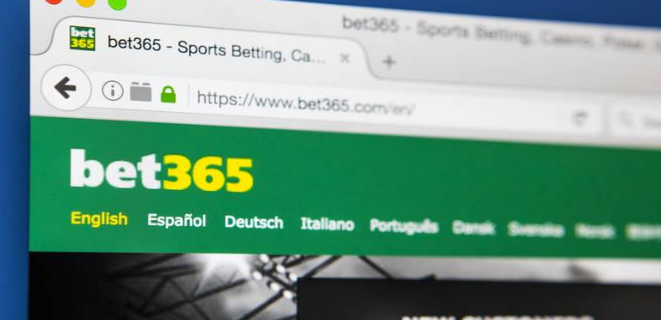Bet365, as an international online gambling platform, does not possess a direct license from the Philippine Amusement and Gaming Corporation (PAGCOR) to operate within the country.
The Current Status of Bet365 in the Philippines
Bet365, one of the world’s leading online gambling platforms, has been a topic of interest for many Filipino bettors. It’s essential to understand its current status in the Philippines, both in terms of its licensing and regulation as well as its accessibility to Filipino players.

Licensing and Regulation
Bet365 operates under various licenses in different jurisdictions around the world. In terms of the Philippines, the primary regulatory body responsible for overseeing online gambling activities is the Philippine Amusement and Gaming Corporation (PAGCOR). PAGCOR has set strict guidelines and standards for online gambling platforms, ensuring that they operate transparently and fairly. However, as of the last update, Bet365 has not secured a direct license from PAGCOR to operate within the country. Instead, it runs its operations targeting the international audience, which includes Filipino players, under licenses from other jurisdictions.
Access and Restrictions for Filipino Players
While Bet365 does not have a specific license from PAGCOR, Filipino players can still access the platform without significant hindrance. Most Filipinos use virtual private networks (VPNs) to mask their IP addresses and access the site. Additionally, the platform offers various language options and currency settings, including the Philippine Peso, to cater to its diverse user base. However, it’s essential to note that while accessing the platform is relatively straightforward, there could be potential risks involved, especially when it comes to financial transactions.
Bet365 vs. Other Online Betting Platforms in the Philippines
The online gambling landscape in the Philippines is diverse, with several platforms vying for the attention of Filipino bettors. While Bet365 has international acclaim, how does it fare against local platforms? Let’s dive into a comparative analysis.
Platform Features
| Feature | Bet365 | Other Platforms |
|---|---|---|
| International Reputation | ✔ | ❌ |
| Localized Currency (PHP) | ✔ | ✔ |
| Local Language Support | ❌ | ✔ |
| Broad Sports Coverage | ✔ | ❌ |
| Mobile App Availability | ✔ | ✔/❌ |
| Direct PAGCOR License | ❌ | ✔ |
| Live Streaming | ✔ | ❌ |
| Customer Support Availability | 24/7 | Business Hours |
| Localized Promotions | ❌ | ✔ |
User Experience and Accessibility
While Bet365 excels in providing a vast array of betting options, high-quality live streaming, and round-the-clock customer service, it may fall short in terms of localized features. On the other hand, local online betting platforms in the Philippines often focus on local sports, languages, and promotions to cater to the Filipino audience. Therefore, the choice between Bet365 and a local platform primarily hinges on individual preferences and betting needs.
Safety and Security
Both Bet365 and most of the major local platforms use state-of-the-art encryption to protect users’ data. However, with Bet365’s international reputation, it often becomes a prime target for hackers. In contrast, local platforms might not be as susceptible. It’s crucial for players to be vigilant and use additional security measures, like two-factor authentication, regardless of the platform they choose.
Risks and Implications of Using Unlicensed Betting Platforms
The world of online gambling offers myriad opportunities for entertainment and potential financial gain. However, venturing into unlicensed betting platforms introduces several risks and consequences. It’s essential for potential players to be aware of these risks to make informed decisions.
Financial Risks
- Lack of Payment Guarantees: Unlicensed platforms might not have stringent mechanisms in place to ensure that players receive their winnings. There’s a higher chance of encountering scams or fraudulent schemes.
- Unprotected Financial Data: Licensed platforms typically employ state-of-the-art encryption to protect users’ financial data. Unlicensed platforms may not prioritize such security measures, leaving users vulnerable to data breaches and thefts.
- No Recourse for Disputes: In case of disputes, players on unlicensed platforms often have no legal recourse or authority to approach, given the platform’s unofficial status.
Legal Implications
- Potential Legal Consequences: Engaging in gambling activities on unlicensed platforms might contravene local laws, leading to potential legal consequences for players, ranging from fines to more severe penalties.
- Supporting Illegal Activities: Unlicensed platforms operate outside the purview of local laws and regulations. By using these platforms, players indirectly support illegal or unauthorized activities.
Ethical and Fair Play Concerns
- Questionable Game Integrity: Unlicensed platforms might not undergo regular audits or checks, which means there’s no assurance that the games are fair and not rigged against players.
- Exploitative Practices: Some unlicensed platforms might employ predatory practices, pushing players towards excessive gambling or not implementing responsible gambling measures.
Security and Privacy Concerns
- Vulnerability to Hacks: Without the necessary security infrastructure, unlicensed platforms become prime targets for hackers and malicious entities looking to exploit user data.
- Personal Data at Risk: Players’ personal information, including their gambling habits, could be sold or misused by unlicensed platforms without stringent data protection policies.

Public Perception and Cultural Factors Affecting Online Gambling
Online gambling, though a global phenomenon, is perceived differently across cultures and societies. In the context of diverse nations and their unique cultural nuances, public perception plays a pivotal role in shaping the acceptance and growth of online gambling. Let’s explore how cultural factors and public views influence this industry.
Historical Context of Gambling
In many cultures, gambling has ancient roots. Traditional games of chance, whether in festive celebrations or communal gatherings, have been a staple. For instance, countries like China have games like Mahjong that are not just about winning money but also about community bonding. However, the transition from traditional to online gambling can be seen as a break from these communal aspects, influencing public perception.
Religious Beliefs and Gambling
Religious beliefs often shape public opinion on various activities, including gambling. In religions like Islam, gambling is explicitly prohibited, impacting its acceptance in countries with significant Muslim populations. Conversely, in predominantly Christian regions, while there might be reservations, the outright ban is less common. Understanding these religious perspectives can offer insight into the regional acceptance or rejection of online gambling.
Economic Impact and Public Perception
The economic benefits, such as job creation and tax revenues from licensed gambling platforms, can sway public opinion positively. When people see tangible benefits in their communities, they might be more inclined to have a favorable view of the industry.

Media Representation and Influence
The portrayal of online gambling in movies, TV shows, and news can significantly impact its perception. A positive portrayal, showcasing glamorous wins and lifestyles, can attract audiences. In contrast, stories highlighting addiction and financial ruin can deter potential players.
Awareness and Education
A well-informed public, aware of both the benefits and pitfalls of online gambling, tends to have a more balanced view. Educational campaigns, highlighting responsible gambling and protection measures, can mitigate negative perceptions and foster a sense of safety.
Cultural Attitudes Towards Money
In cultures where discussions about money and wealth are private and conservative, gambling might be viewed as a taboo. Conversely, in societies where financial success and quick gains are celebrated, online gambling might be more readily embraced.

